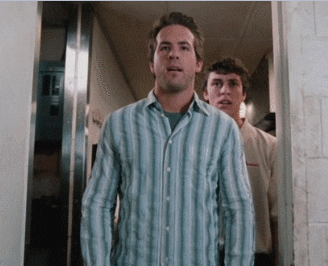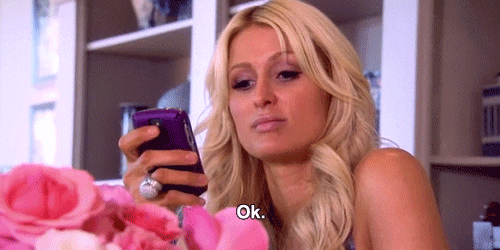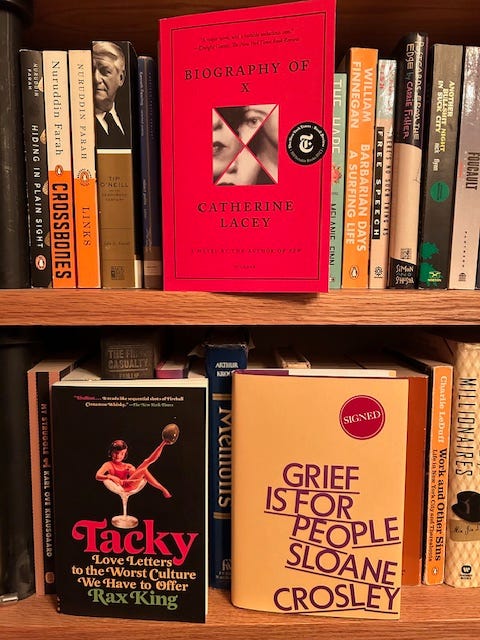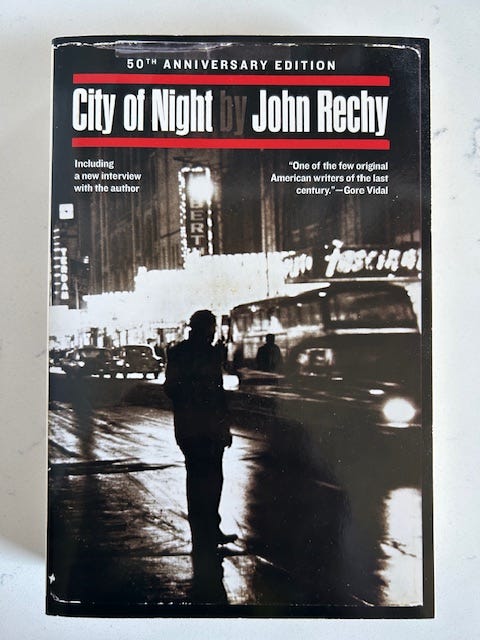'Mother Doll' by Katya Apekina
'I lived many, many years with secrets that I repressed and repressed until I was formed from them.'—Review #229

I’ve never bought a book as fast as I did when Katya Apekina’s new novel ‘Mother Doll’ became available for preorder. It was a no-brainer because longtime Books on GIF subscribers know I love her debut work, ‘The Deeper the Water the Uglier the Fish,’ and have been pushing it relentlessly since I reviewed it in 2019. I’ve posted about what I call ‘The Fish Book’ on social media a million times. When my friend
needed a guest post and recommendation for her newsletter, Reading Under the Radar, I wrote about it. When Dense Discovery asked me to recommend a few books, The Fish Book was at the top of the list. Naturally, earlier this month I went to McNally Jackson where Apekina read from and discussed ‘Mother Doll.’ I was excited to hear about her new book, but during the event I started to feel creeping dread. Had I been touting The Fish Book too much? If I got ‘Mother Doll’ signed after the talk, would Apekina notice I had damaged the dust jacket while tearing the book-mail packaging open like an animal? Would it be awkward to ask her to sign ‘Mother Doll’ AND The Fish Book, which I also had in my bag? It’s all been too much, hasn’t it, and she’s going to think I’m a weirdo, or worse, a maniac, right? After the event, when it was Donna’s and my turn to get our book signed, Apekina looked up and said, ‘I recognize you!’ Oh no! My dread is proving true, I thought, just like I feared! I was like:
But it was all good! We had a nice and quick chat, and she appreciated that I had spread the word about The Fish Book (I left it in my bag, which was the correct move). She wrote a lovely inscription in my copy of ‘Mother Doll,’ with a sketch of a nesting doll that evokes the novel’s title and its narrative structure. And I don’t think she noticed the ghastly rip!
Here’s the book’s cover:

‘Mother Doll’ follows Zhenia, a 20-something who immigrated to Greater Boston from Russia at an early age with her mother, Marina, and grandmother, Vera. When we meet her, Zhenia is living in Los Angeles, working at a local hospital as a Russian translator and married to Ben, an actor. She’s flighty and impulsive; she’s had a fling with a doctor she calls The Tin Man and has had a falling out with a close friend. Her life is going nowhere until two things happen: 1) She gets pregnant, seemingly miraculously, despite Ben’s vasectomy, and, 2) She gets a call from a stranger named Paul. Paul is a medium, and he tells Zhenia:

Paul has been contacted by the spirit of Zhenia’s great-grandmother Irina. Irina wants to dictate her life story to Zhenia, through Paul, to explain why she left Vera (her daughter and Zhenia’s grandmother) at a Russian orphanage following the Russian Revolution. Irina hopes that after she has told her story, Zhenia will forgive her and allow her spirit to pass on from the cloud-like limbo where it currently resides. Irina, speaking in Russian and using Paul’s voice, explains that she can’t go to Vera directly because her now-elderly daughter is catatonic and near death. She also can’t go to Zhenia’s mother, who is a scientist and is blocked off from such otherworldly things. Only Zhenia possesses the right frame of mind, or gullibility as Irina calls it, for the project to be successful. Zhenia’s like:
As Irina speaks through Paul, Zhenia transcribes and translates with pen and paper. We learn that Irina came from a well-to-do St. Petersburg family, went to a finishing school, and rubbed shoulders with figures from the tsar’s orbit, including Rasputin (who cameos). But as revolutionary fervor in Russia grows as World War I rages, Irina gets increasingly involved in plots and actions that have harrowing and tragic consequences. I won’t spoil them here. The two women’s narratives intertwine, and often show sharp contrasts between their lives and experiences. For example, Irina smuggles supplies and weapons to revolutionaries; Zhenia smugly derides parents with ill-behaved children. Irina waits in line for bread; Zhenia struggles to clear up empty food containers around her apartment. The project, which Paul hilariously hoped would lead to a lucrative book deal, eventually takes a physical toll on him, and on Zhenia, too. Her life goes through upheaval. Things sour with Ben; a precondition of their marriage was no children. Long hours on the phone with Paul and Irina cause her to start missing work. She wonders if, and how, her pregnancy and Irina’s arrival are connected. How will their conversation affect her unborn child? Will she be forever changed by this supernatural encounter?

At the McNally Jackson event, Apekina discussed how she was inspired to write this novel after conversations she had had with her grandparents, taking down notes about their life stories. (It was a melancholy reminder that I had wanted to do something similar with my grandmother before she died, but I decided it was too morbid and never followed through.) She also talked about how, in her research, she had several conversations with mediums that were fascinating and bizarre. Apekina was asked by the moderator whether she had ever had an encounter with a ghost or spirit, and she told a story about how she felt someone related to her had communicated to her from beyond the grave. That story gave me one of those chills, like:

She also talked about how The Fish Book differs from ‘Mother Doll.’ The earlier work was born out of her previous experience writing short stories, which led to the novel’s fragmented structure, with the narrative spread across disparate sources. The new book is more straightforward and vertical (I can’t think of another word to describe it) in how it explores traumas that have been passed from one generation to the next. ‘Mother Doll’ didn’t excite me as much as The Fish Book, but I love how it went in a different direction from the previous work and tells a deeper story. It shows how decisions made decades ago by ancestors we may have never met still shape us today. It grapples with forgiveness, and asks whether we can truly forgive ourselves without receiving absolution from another. It tackles parenthood generally, and motherhood specifically, and how hard choices made at one moment can be misunderstood by future generations. And I love the idea that the dead are searching for ways to reach us and explain themselves. If only we can find a way to hear them.
An opening excerpt:
It was ironic that Zhenia and Ben would come home from spending time with people who had kids and be so giddy with relief and self-righteousness over their decision not to have any that it would make them want to fuck.
They had just gotten back from seeing a high school friend of Ben’s who was in town to fundraise for the Obama campaign and had brought along his whole family. It was watching this friend try to hold a conversation while also wrangling his toddler and switching off with his tense wife on something ominously called “The Baby’s Bedtime Routine” that made Zhenia and Ben, now in their empty, quiet apartment, feel engorged with smugness.
“You can’t really go anywhere,” Zhenia said, leaning out of the bathroom midfloss to continue the shit-talking they’d started in the car. “You can’t even have a conversation. Having kids makes people so rude. Can you imagine just letting your kid stand in front of your face, yelling and interrupting like that?”
Ben was naked in bed already, absentmindedly stroking his nipples. “It’s true. What did we even talk about? He’d ask me about work, and then as soon as I’d start to answer, he would shift his attention to his screaming child, and I didn’t know what I was supposed to do in that situation. Like, am I supposed to wait? Am I supposed to answer over the screaming child?”
Zhenia spat in the sink and dried her mouth with a towel, laughing. “I would have loved to see you yell over that kid like you were in a loud bar or something.”
Who Katya Apekina thanked:
In her acknowledgements, Apekina thanks her grandparents as well as other family members and early readers of the book. Most interestingly, she also points out, as she did in the McNally Jackson talk, that although there are similarities between her and Zhenia, the book is in no way autobiographical.
My rating:

‘Mother Doll’ by Katya Apekina was published by The Overlook Press in 2024. 307 pages. $26.04 at Bookshop.org.
New to the TBR:
‘Biography of X’ by Catherine Lacey (McNally Jackson)
‘Grief Is for People’ by Sloane Crosley (McNally Jackson)
‘Tacky: Love Letters to the Worst Culture We Have to Offer’ (Lofty Pigeon Books)
(Fun fact, I went to high school with Sloane.) Books on GIF does not solicit review copies. We feature books we purchase at independent bookstores around New York City and on our travels, or were borrowed electronically from the Brooklyn Public Library.
What’s next:
Before you go:
ICYMI: Review #228
Read this: ‘The Mad Perfumer of Parma’ by
in The New York Times Magazine features Hilde Soliani, an Italian perfume artist. The scents she’s created evoke snow, old Italian opera houses and oysters. Her process is fascinating, as is the science behind how perfumes can produce different scent notes as you’re wearing them. It made me want to wear more fragrances than I do now (virtually none), but the most inspiring element of the piece was how Soliani quit her corporate job at 40 to pursue a life of making perfume. Donna and I wish we could do something similar!Hear this: I’m excited to listen to ‘Something We Read,’ a book-related podcast set to launch on Tuesday from fellow newsletter writer
and her sister, Kathryn. It sounds like it will include fun discussions of books!If you enjoyed this review:
Thanks for reading, and thanks especially to Donna for editing this newsletter!
Until next time,

MPV










Great review, you piqued my interest in Mother doll. But I have no idea when i will read it
I have not read The Fish Book or Mother Doll but now I want to :) also, I just finished Grief Is For People and I really liked it.